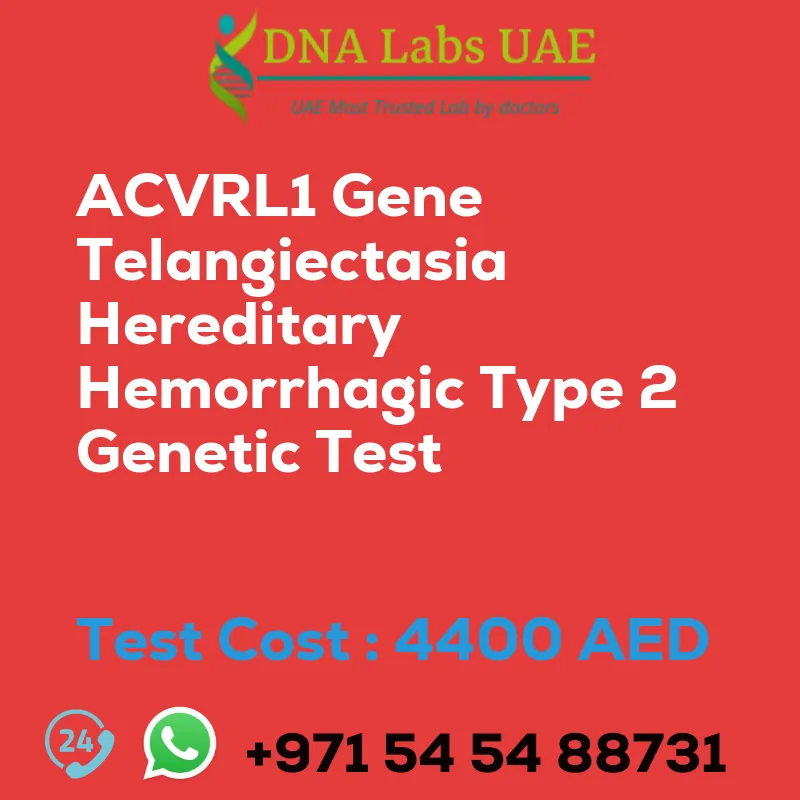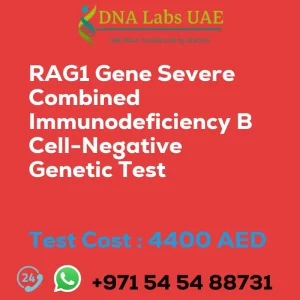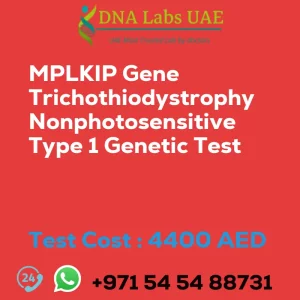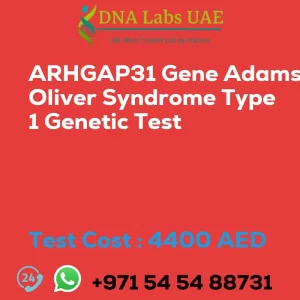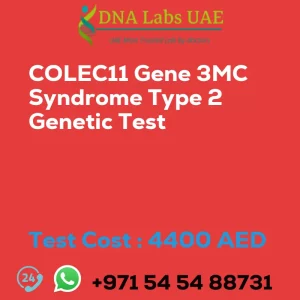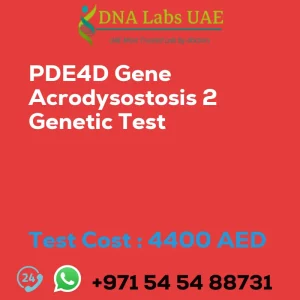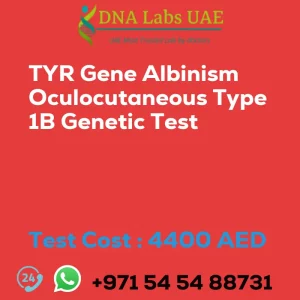ACVRL1 Gene Telangiectasia hereditary hemorrhagic type 2 Genetic Test
At DNA Labs UAE, we offer the ACVRL1 Gene Telangiectasia hereditary hemorrhagic type 2 Genetic Test. This test is designed to detect mutations in the ACVRL1 gene, which is associated with a genetic disorder called hereditary hemorrhagic telangiectasia (HHT), also known as Osler-Weber-Rendu syndrome.
HHT is a condition that affects blood vessels, causing abnormal connections between arteries and veins. This leads to the formation of small, fragile blood vessels called telangiectasias. These telangiectasias can rupture and cause bleeding, resulting in symptoms such as nosebleeds, gastrointestinal bleeding, and in severe cases, organ damage.
Our ACVRL1 Gene Telangiectasia hereditary hemorrhagic type 2 Genetic Test utilizes NGS (Next-Generation Sequencing) technology, which allows for the analysis of multiple genes simultaneously. This enables us to identify mutations not only in the ACVRL1 gene but also in other genes associated with HHT.
The cost of the ACVRL1 Gene Telangiectasia hereditary hemorrhagic type 2 Genetic Test is AED 4400.0. To perform the test, a blood sample is required, and the results are typically delivered within 3 to 4 weeks.
This test is particularly beneficial for individuals with unclear clinical symptoms or those with a family history of HHT. It can aid in the diagnosis of HHT and provide valuable information for genetic counseling and management of the condition.
For individuals planning to undergo the ACVRL1 Gene Telangiectasia hereditary hemorrhagic type 2 Genetic Test, we recommend a genetic counseling session. During this session, a pedigree chart of family members affected by ACVRL1 Gene Telangiectasia hereditary hemorrhagic type 2 NGS Genetic DNA Test will be drawn to gather clinical history information.
In addition to diagnosis, this test can also be used for carrier testing in family members and prenatal testing to determine if a fetus has inherited the ACVRL1 gene mutation.
Don’t let the symptoms of HHT go unnoticed. Get tested today and take control of your health with DNA Labs UAE’s ACVRL1 Gene Telangiectasia hereditary hemorrhagic type 2 Genetic Test.
| Test Name | ACVRL1 Gene Telangiectasia hereditary hemorrhagic type 2 Genetic Test |
|---|---|
| Components | |
| Price | 4400.0 AED |
| Sample Condition | Blood |
| Report Delivery | 3 to 4 Weeks |
| Method | NGS Technology |
| Test type | Osteology Dermatology Immunology Disorders |
| Doctor | Dermatologist |
| Test Department: | Genetics |
| Pre Test Information | Clinical History of Patient who is going for ACVRL1 Gene Telangiectasia, hereditary hemorrhagic, type 2 NGS Genetic DNA Test. A Genetic Counselling session to draw a pedigree chart of family members affected with ACVRL1 Gene Telangiectasia, hereditary hemorrhagic, type 2 NGS Genetic DNA Test gene ACVRL1 |
| Test Details |
ACVRL1 gene is associated with a genetic disorder called hereditary hemorrhagic telangiectasia (HHT), also known as Osler-Weber-Rendu syndrome. This disorder affects blood vessels, causing abnormal connections between arteries and veins, leading to the formation of small, fragile blood vessels called telangiectasias. These telangiectasias can rupture and cause bleeding, which can lead to symptoms such as nosebleeds, gastrointestinal bleeding, and in severe cases, organ damage. NGS (Next-Generation Sequencing) genetic testing is a type of genetic test that uses advanced sequencing technologies to analyze multiple genes simultaneously. In the case of HHT, NGS genetic testing can be used to identify mutations in the ACVRL1 gene, as well as other genes associated with HHT. NGS genetic testing for HHT can help diagnose individuals with the condition, especially in cases where the clinical symptoms are not clear or when there is a family history of HHT. It can also be used for carrier testing in family members of individuals with HHT, as well as for prenatal testing to determine if a fetus has inherited the ACVRL1 gene mutation. Overall, NGS genetic testing for the ACVRL1 gene in hereditary hemorrhagic telangiectasia type 2 can provide valuable information for diagnosis, genetic counseling, and management of the condition. |

